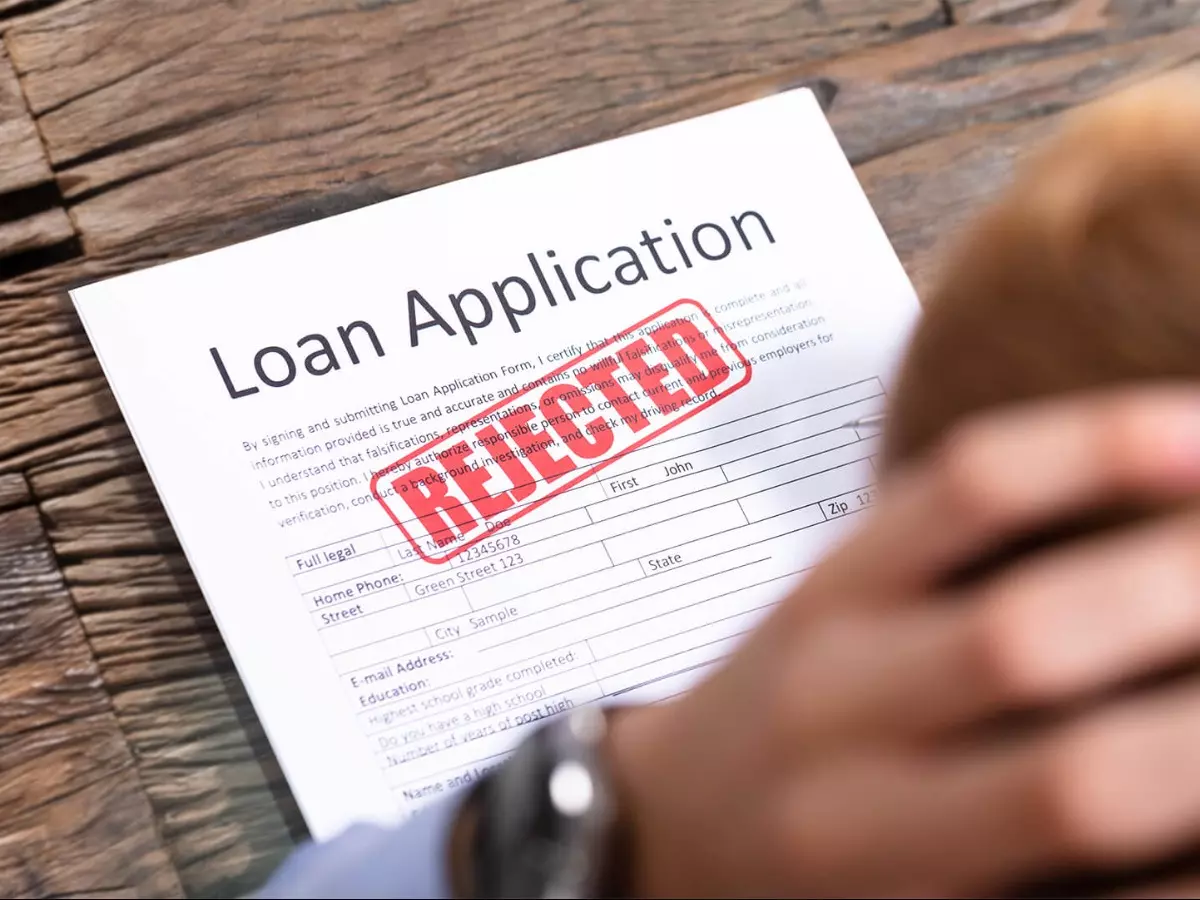When unexpected financial emergencies arise, relying solely on your savings might not always be enough. In such situations, applying for a loan can be a lifesaver. However, the last thing you want is to have your loan application rejected. While applying for a personal loan can seem straightforward, approval is never guaranteed.
There are several reasons why your application might be denied, and understanding these reasons can help you avoid future rejections. Lenders are required to provide you with the reasons behind their decisions, which can be frustrating but also enlightening. By knowing why your loan application was rejected, you can take steps to improve your financial standing and increase your chances of approval next time.
Why Do Loan Applications Get Rejected?
1. Low Credit Score
Your credit score is one of the most critical factors lenders consider when evaluating your loan application. It’s a numerical representation of your creditworthiness, based on your credit history. Lenders typically have a minimum credit score threshold, and if your score falls below this, your application is likely to be rejected. Even if you have no credit history at all, lenders may view you as a high-risk borrower and deny your application.
To avoid this, focus on building and maintaining a good credit score. Pay your bills and loan instalments on time, keep your credit card balances low, and avoid applying for too much credit at once. If you’re wondering whether you can get a personal loan with no credit history, check out our guide on how to secure a personal loan without a credit history.
2. Multiple Loan Applications and Enquiries
Applying for loans from multiple lenders might seem like a good way to increase your chances of approval, but it can actually backfire. Every time you apply for a loan, the lender will check your credit report. These inquiries are recorded, and if the Credit Bureau report shows that you’ve applied for loans with several lenders, it can make you appear financially distressed.
This raises red flags for lenders, who may question your ability to manage debt and reject your application. To avoid this, limit your loan applications to one lender at a time. Do your research beforehand to find a lender that best suits your needs and financial situation.

READ MORE
Platforms To Get Instant Loan In Nigeria
Do Zero Interest Personal Loans Exist?
3. High Amount of Existing Debts
If you already have a significant amount of debt, lenders may hesitate to approve your loan application. Having multiple open credit accounts, such as loans and credit cards, can make you seem overburdened with debt. Lenders want to ensure that you can comfortably repay the loan, and a high debt-to-income ratio suggests that you might struggle to do so.
To improve your chances of approval, focus on paying down your existing debts before applying for a new loan. Only borrow what you can realistically afford to repay, and avoid taking on more debt than you can handle.
4. Not Meeting the Income Criteria
Lenders need to be confident that you’ll be able to repay the loan, and your income is a key factor in this assessment. If your income is too low or unstable, your application may be rejected. Lenders typically have minimum income requirements, and if you don’t meet these, you’ll need to either look for a lender with more flexible criteria or work on increasing your income.
If you’re unsure whether your income meets the lender’s requirements, it’s a good idea to discuss this with them before submitting your application. They may be able to offer alternative solutions or suggest ways to strengthen your application.
5. An Unstable Employment History
Your employment history plays a significant role in the loan approval process. Lenders prefer to lend to individuals with stable, long-term employment, as this suggests a reliable source of income. If you’ve changed jobs frequently or work for a company that isn’t well-established, lenders may view you as a higher risk and reject your application.
To improve your chances, aim to maintain a stable employment record. Most lenders prefer applicants with at least three years of work experience, so if you’re new to the workforce, you may need to wait before applying for a loan.
6. You Tried to Borrow Too Much Money
Lenders will assess your financial situation to determine how much you can realistically afford to borrow. If you request a loan amount that exceeds what they believe you can repay, your application may be rejected. This is because lenders want to minimize the risk of default.
To avoid this, be realistic about how much you need and how much you can afford to repay. Use a loan calculator to estimate your monthly payments and ensure they fit comfortably within your budget.
7. Your Loan Purpose Didn’t Match the Lender’s Criteria
Some lenders have specific restrictions on how you can use the loan funds. For example, personal loans may not be allowed for certain purposes, such as education expenses or business investments. If your intended use of the loan doesn’t align with the lender’s criteria, your application may be denied.
Before applying, carefully review the lender’s terms and conditions to ensure your loan purpose is approved. If it’s not, look for a lender that offers loans for your specific needs.
PEOPLE ALSO READ
All About Home Credit Cash Loan
How Private Money Lending Works
Final Thoughts
Having your loan application rejected can be disappointing, but it’s not the end of the road. By understanding the reasons behind the rejection, you can take steps to improve your financial situation and increase your chances of approval in the future.
If you’re planning to apply for a loan, take the time to prepare. Check out our guide on how to improve your credit score before applying for a loan to ensure you’re in the best possible position to secure approval. Remember, a little preparation can go a long way in helping you achieve your financial goals.
